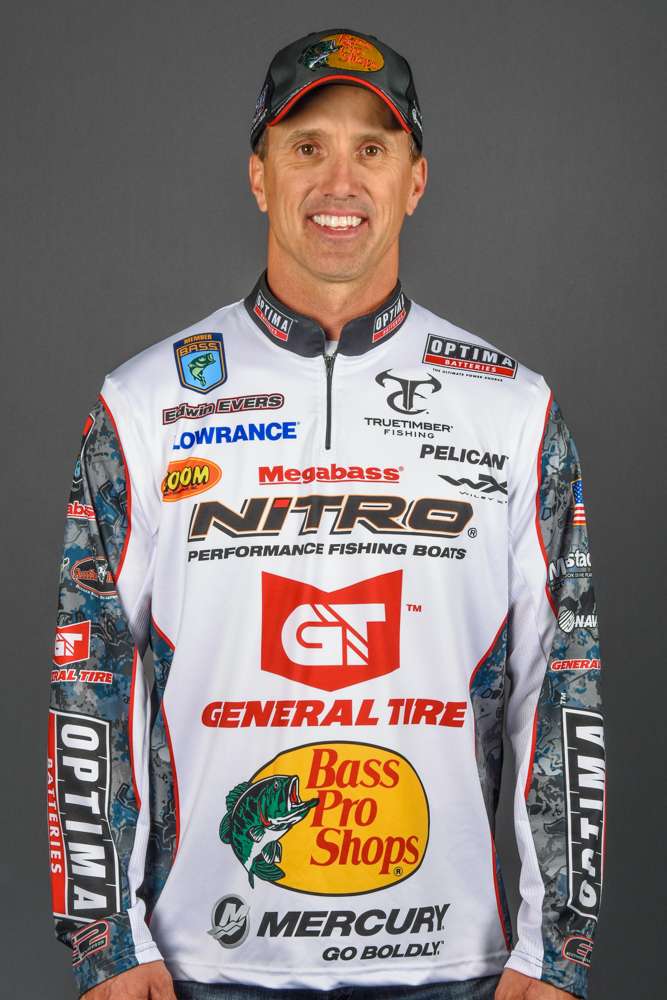I don't know about you, but when I was in school we got report cards about halfway through the grading period. For me, that tradition is still alive even though I'm not in school anymore. The midway point of the Bassmaster Elite Series season is a good time to look back and evaluate my performance.
Of course, the real report card for Elite anglers is the Toyota Bassmaster Angler of the Year standings. Those grades don't lie. They tell you exactly how you stack up against the rest of the field. Right now I'm 58th out of 108 anglers — about as close to the middle of the pack as you can get.
When I grade myself on the key things that go into my fishing, here's what my report card looks like.
Preseason Preparation = C
A lot goes into getting ready for a season on the Elite Series, and this year I didn't do as good a job as I should have. I didn't spend as much time on tackle preparation as I usually do, and it's cost me.
There have been a couple of times when I wanted to try a bait or technique, but the stuff I needed was back at home. Not only does that hurt you because you can't try some things that might work, but it takes your head out of the game … just a little — maybe just enough to hurt you. Instead of being completely focused on the task of fishing, you find yourself thinking, "I wonder how I'd be doing if I had this or that with me?"
Practice = C
The official practice period of Elite events is critical. It's when you get dialed in to what the bass are doing on the tournament waters. This year, I haven't been covering water the way I should. Instead I've been focusing on one area and trying to figure out the fish there rather than trying to find the very best area. It's cost me, too. Several times I wasn't in the right places and didn't give myself a chance to succeed.
Last week at Toledo Bend was a good example of my practice issues this year. In practice, I caught a giant on a jerkbait and got on a good flippin' pattern. I found several ways to catch some pretty good fish, but I never locked in on any of them. I needed to use my time better.
Execution = D
This year, my execution has been terrible, and I'm really not sure what's wrong. I had the bites to do well at Lake Seminole — including two chances at the same 10 pounder — but couldn't put them in the boat. The same thing happened at the St. Johns River. I had plenty of opportunities, but didn't maximize them.
I'm just not putting the big bites in the boat, and it's frustrating.
On-the-Water Adjustments = B
Being aware of any changes on the water and adjusting to them quickly and effectively is a big part of being a successful tournament angler. I have a tendency to be stubborn once a tournament starts and will often stick to what I found in practice even though the signs are there to do something different. It's something I have to concentrate on to do well.
This is actually one of the few areas I'm reasonably happy about this year. I've been making some pretty good adjustments on the fly after the tournaments started and have been able to improve my catches from day to day as a result.
Equipment = A
Having quality equipment and taking care of it is critical on the tournament trail. Luckily, I work with some great sponsors and take the time to make sure my gear is ready for the grind of the Elite season.
This year I've had no issues, no mechanical failures and no problems that took me away from my fishing. It would be nice to have a scapegoat for the season I'm having, but it's definitely not the equipment.
Overall Grade = C-
Maybe I'm going a little easy on myself here, but there are a lot of fine lines in fishing. A break here or there and I could easily be 20 places higher in the standings. So far this year, the breaks haven't been going my way. Hopefully, that will change.
Areas for Improvement
No report card is complete without a rundown of areas where improvements can be made, and I have plenty of them. I'll spare you the full list and just share two.
First, I misjudged some events by thinking I needed huge weights to do well when it took a lot less. For example, I went into the early events thinking I needed 25 pounds a day to have a chance to win. I was confident I could catch 21 or 22 pounds, but thought I needed more. So, I went looking for bigger bags and fell way short. If I had stayed on the fish I knew I could catch, I would have done a lot better.
Second, too much homework can be almost as bad as not enough. This is closely tied to that first area for improvement. When you're doing your research, you have to put it in some sort of perspective. Maybe historical tournament weights are unusually high because of a different time of year or the use of Alabama rigs. When that happens, you have to readjust your take on the event.
I plan to pull my grades up in the second half.

